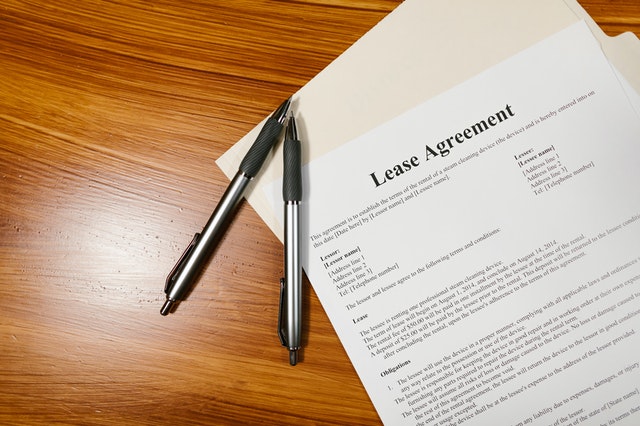_1.jpg)
The majority of tenants who sign a lease intend to stay during the entire length of their lease.
However, a tenant could have many reasons to break a lease in Arizona. Your tenant may, for instance, have to break their lease early for a job relocation or your tenant may have bought a home and no longer needs to continue renting.
Breaking a lease is anything but ideal. After all, breaking a contractual agreement can bear a lot of financial and legal repercussions.
So, what can you do if your tenant breaks their lease agreement? Here’s everything you need to know for breaking a lease in Arizona.
Landlord Rights & Responsibilities When Signing a Lease in Arizona
When a lease is signed between a resident and property owner, each party receives certain rights. Being familiar with the landlord-tenant laws in Arizona is extremely important for both drafting and breaking a lease.
As a landlord in Arizona, the lease grants you certain rights when renting out a property. Primarily the right to be paid rent. You have a right to collect it for the entire length the lease will be active, regardless of whether a tenant occupies the unit or not.
This means that you can still hold the tenant liable for any rent payments due even after they break the lease. Without sufficient legal justification, their security deposit could be withheld in part or in full.
Similarly, as a property owner in Arizona, you also have certain obligations under a lease agreement. The following are some of the responsibilities.
Provide habitable housing.
Adhere to the statewide landlord-entry rules.
Respect your tenant’s privacy.
Failing to perform these duties means your tenant is in the legal right to break their lease. So, before trying to hold your tenant liable for breaking the lease, first be sure you’re not responsible for their decision to break the lease.

How to Break a Lease Legally in Arizona
An Arizona tenant can legally break their lease without penalty only through a handful of scenarios. We’ve listed below the most common scenarios.
Arizona Early Termination of Rental Lease
An early lease termination clause exists to allow a tenant break their lease. The tenant is responsible for meeting certain requirements in order to be protected by this clause in Arizona. Two of the most common requirements are:
Providing a 30-day notice.
Paying a fee, usually the equivalent of the rent of two months.
Starting an Active Military Duty
Active service members who are relocated for military duty are protected by the Service Members Civil Relief Act. The protection starts from the day a member enters active duty and ends between 30 and 90 days later after getting discharged.
The Act requires that tenants satisfy the following three conditions before being relieved of their lease obligations.
Prove that they signed the lease prior to starting active duty.
Prove that they intend to stay in active duty for at least the next 3 months.
Attach the deployment letters from their commanding officer alongside their written notice stating their intentions to terminate the lease.

Even with all the aforementioned conditions met, the lease doesn’t end immediately. The earliest it can end is a month after the next rent period begins.
Health and Safety Codes
Landlords in Arizona must maintain their units to a certain standard. When a tenant signs a lease, it’s implied that the rental premises meet all the requirements under the state’s Warranty of Habitability. (Ariz. Rev. Stat. Ann. §§ 33-1324).
Unlivable living conditions include exposed wiring, holes in the floor, and non-working HVAC system during the hot summer months.
If the unit doesn’t meet these conditions and you haven’t done the requested repairs; the tenant may have a right to move out. A court could also probably rule that you have “constructively” evicted them by supplying unlivable living conditions.
Landlord Harassment
This type of harassment can happen if a property owner actively engages in actions meant to compel their tenant to leave.

The following are some common examples.
Creating unnecessary noise disruptions.
Withholding amenities that your tenant is entitled to.
Trying to carry out an illegal eviction
Imposing illegal rent increments.
All forms of landlord harassment are illegal in Arizona. Using coercion, intimidation or harassment on your tenant will not only fail, but may also get you in legal trouble.
Privacy Violation
Repeated privacy violations can also be enough legal grounds for your tenant to break their lease in Arizona. According to Arizona landlord entry laws, landlords must provide 2 days’ notice prior to entry. (Ariz. Rev. Stat. Ann. §§ 33-1343(D)).
After a Tenant Legally Breaks a Lease
Arizona landlords have a responsibility to take reasonable steps to find a replacement tenant when a tenant moves out. This is the landlord’s duty to mitigate damages. So, when a tenant leaves, you must make reasonable efforts to re-rent the unit. You cannot wait until the lease ends and hold your tenant liable for unpaid rent, as this wouldn't comply with Arizona's current eviction laws. (Arizona code § 33-1370).
Conclusion
Breaking a lease is a less than ideal situation, but in some cases, it can be inevitable for your tenants. Be sure to uphold your duties as a property owner and keep track of your property to avoid possible legal fault.
It can be difficult as a property owner to keep track of your rental tenant's leases. We recommend reaching out to the experts at SGI Property Management for any help managing or dealing with a tenant breaking a lease in your Arizona rental.
Disclaimer: This blog is only meant to be informational and not a substitute for professional legal advice. If you have a specific question, kindly get in touch with a qualified attorney or an experienced property management company.









